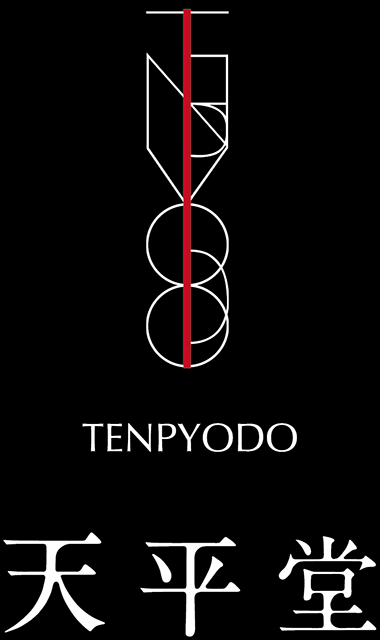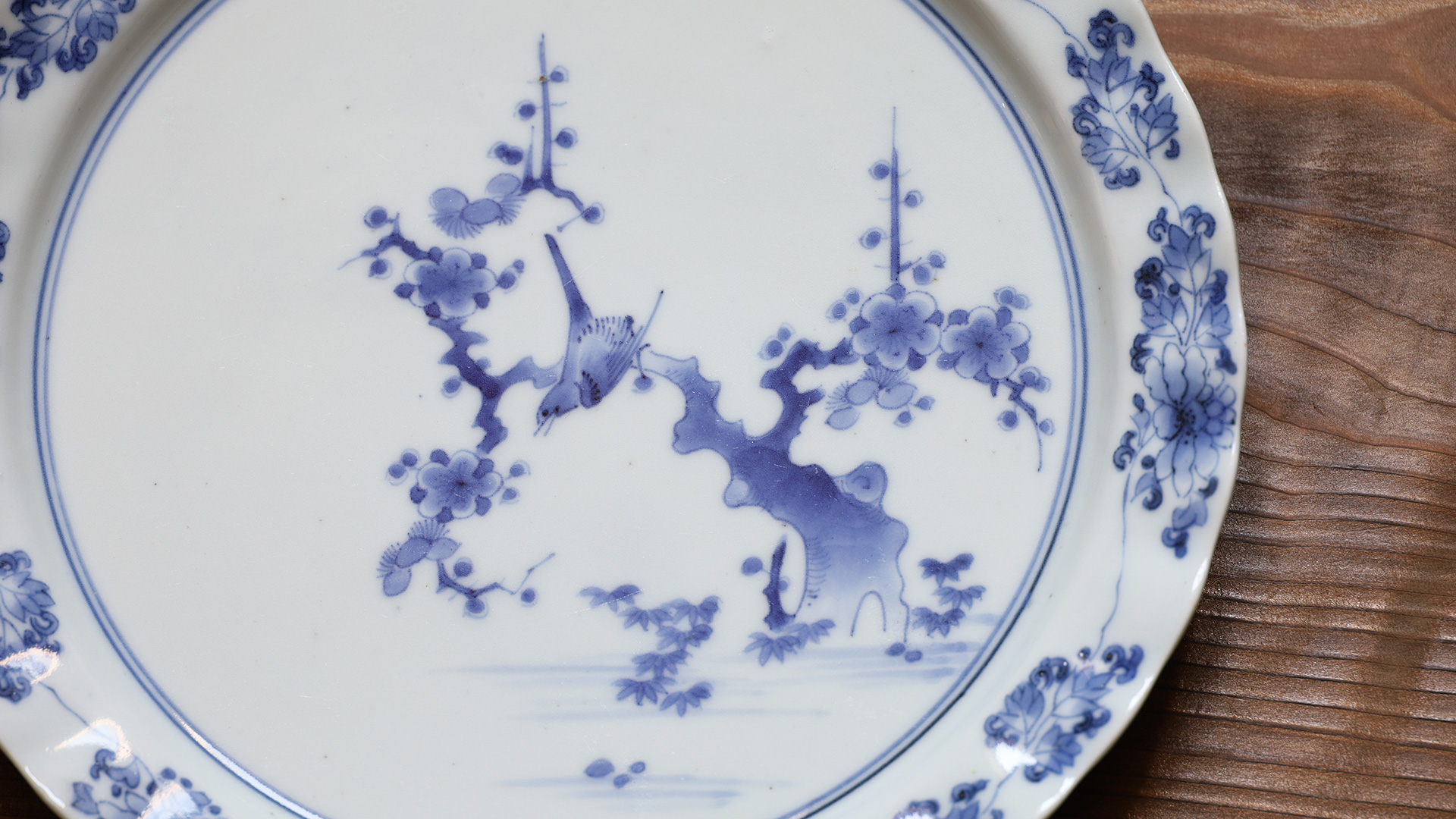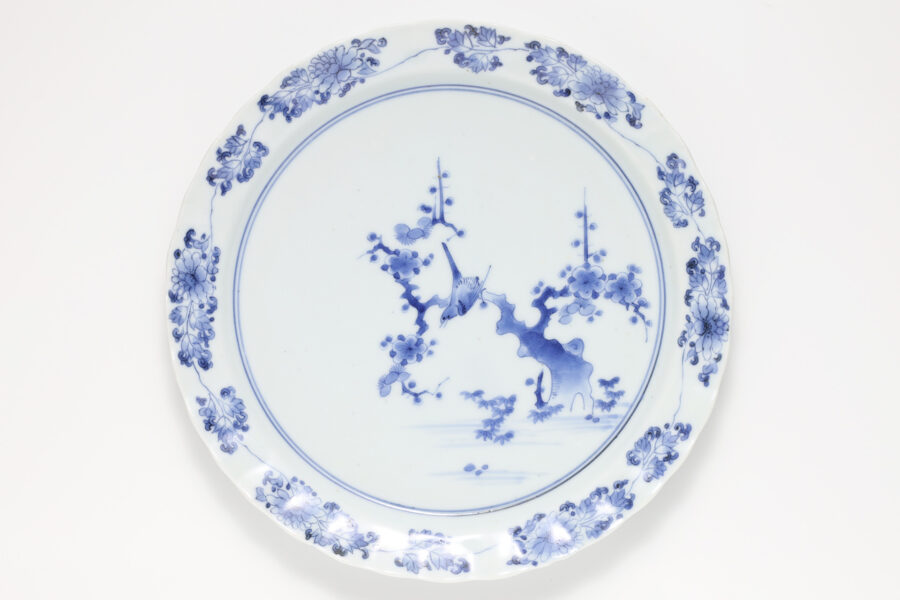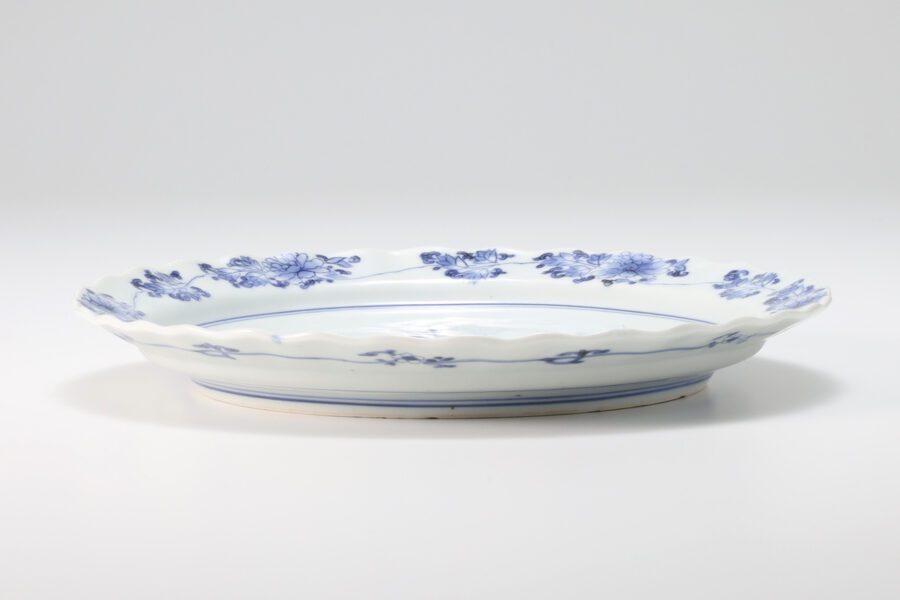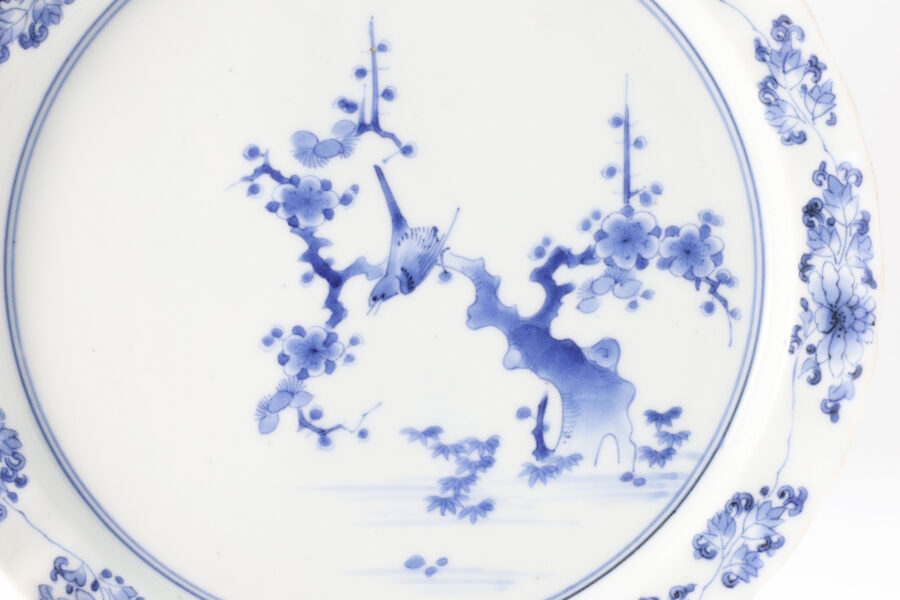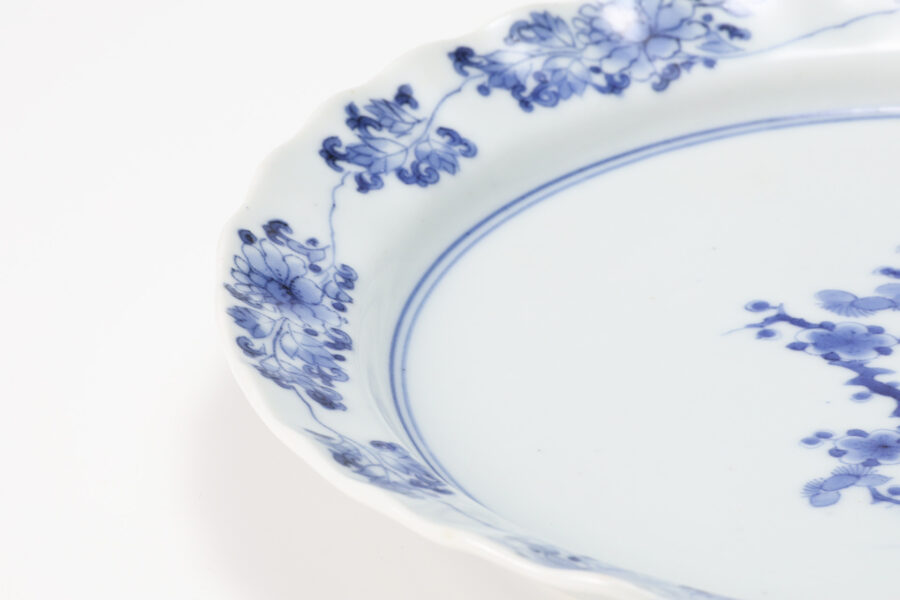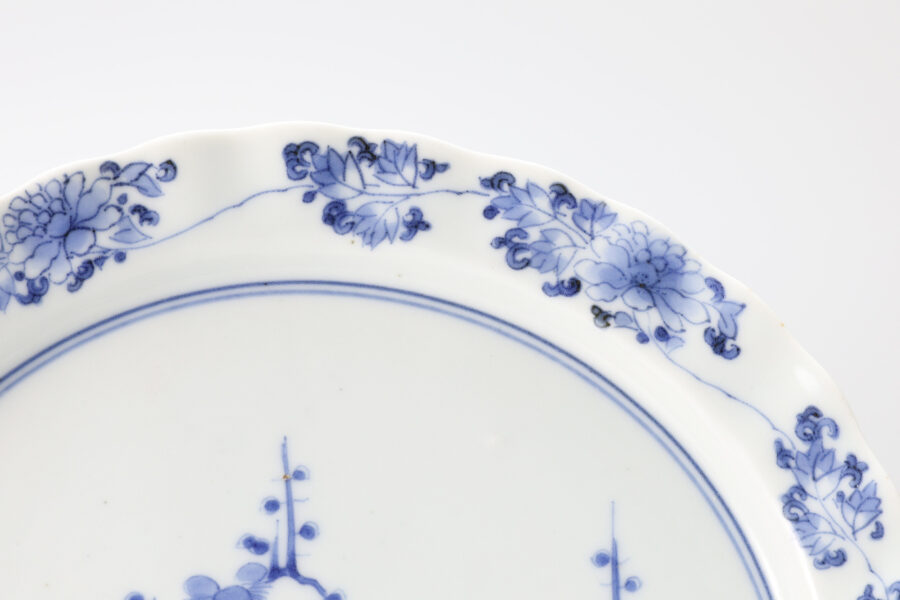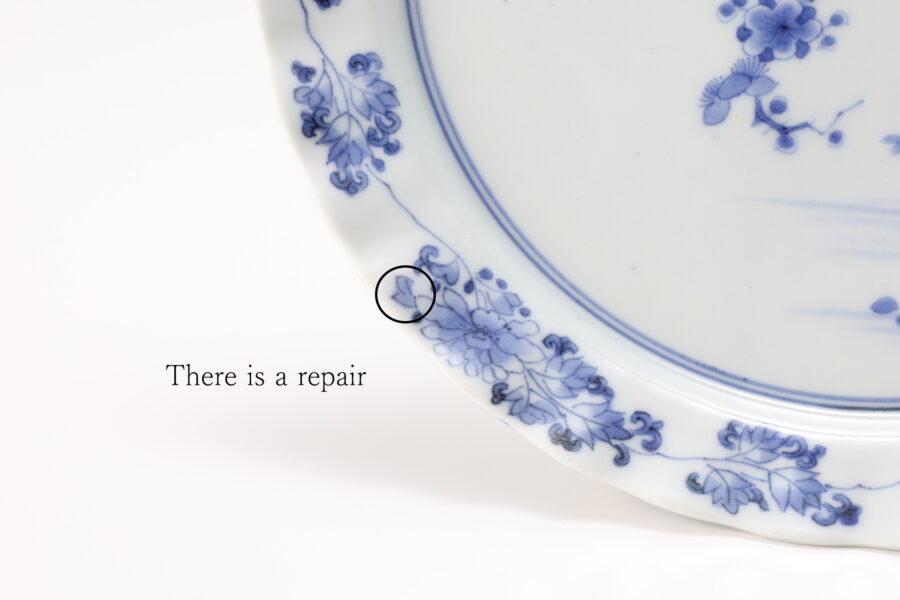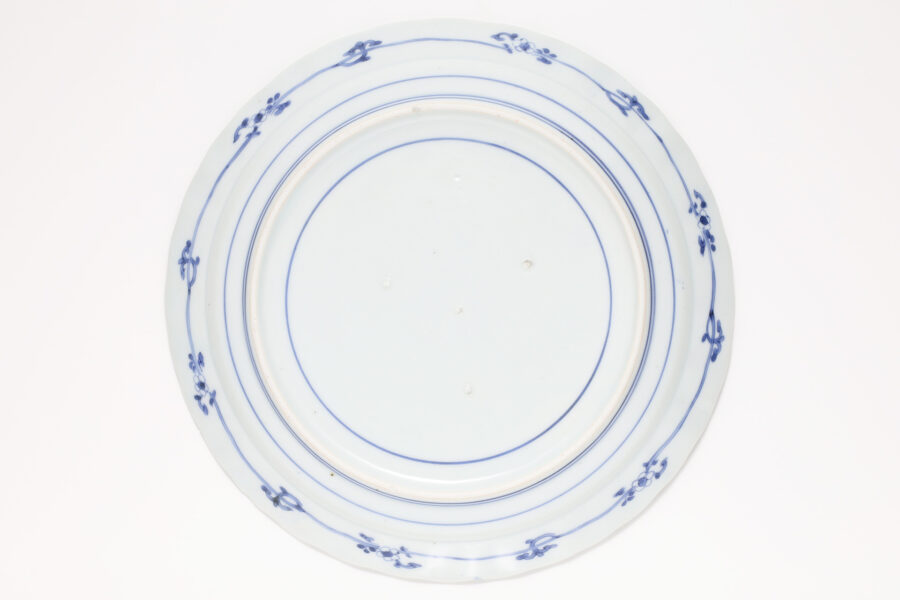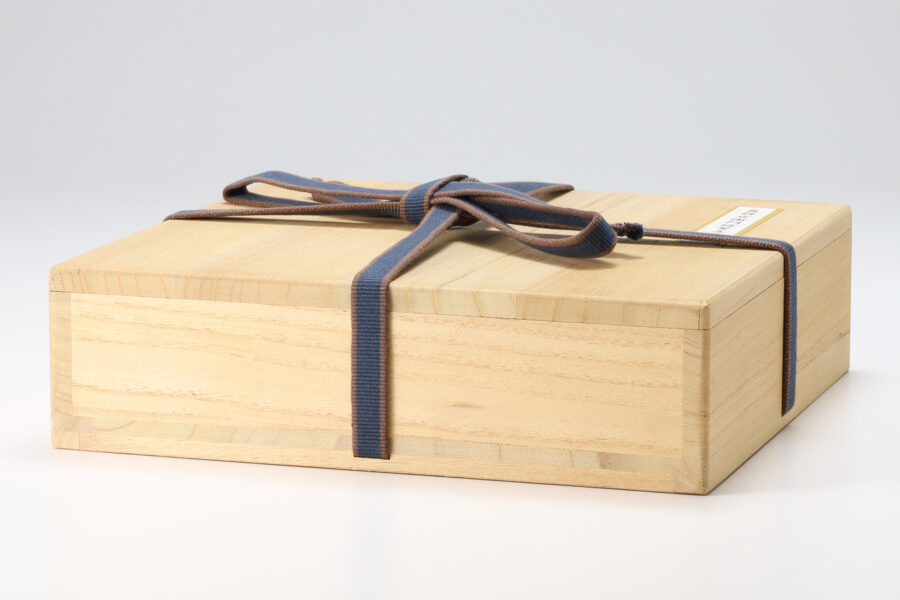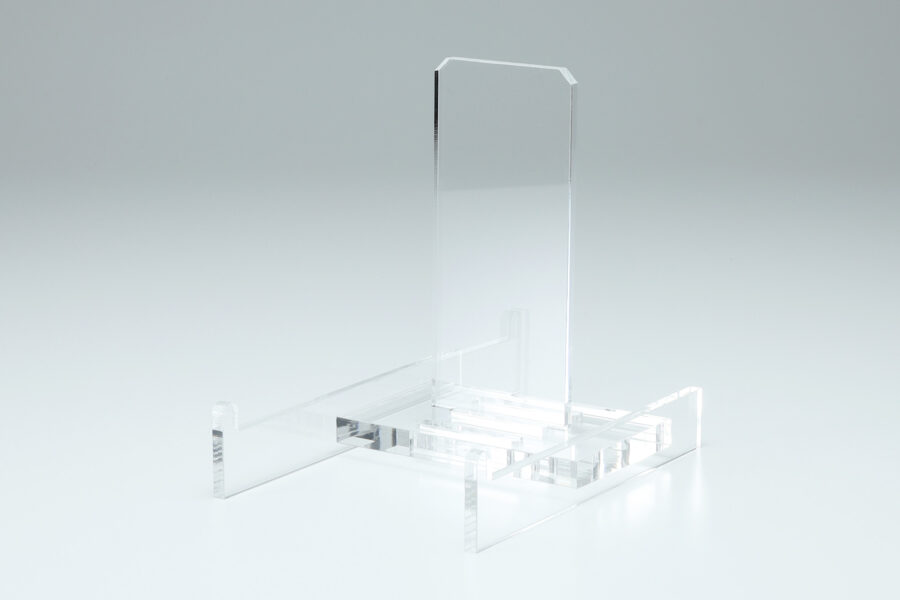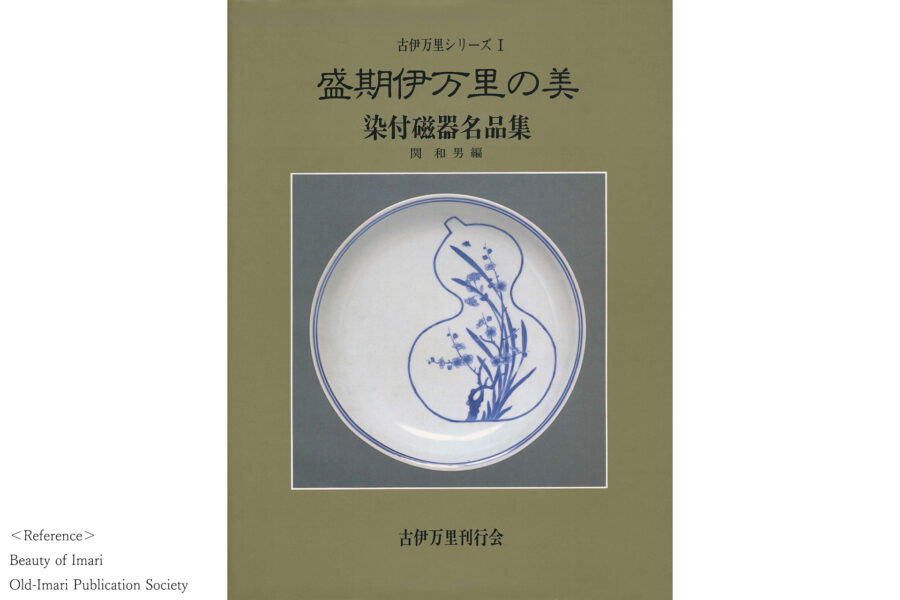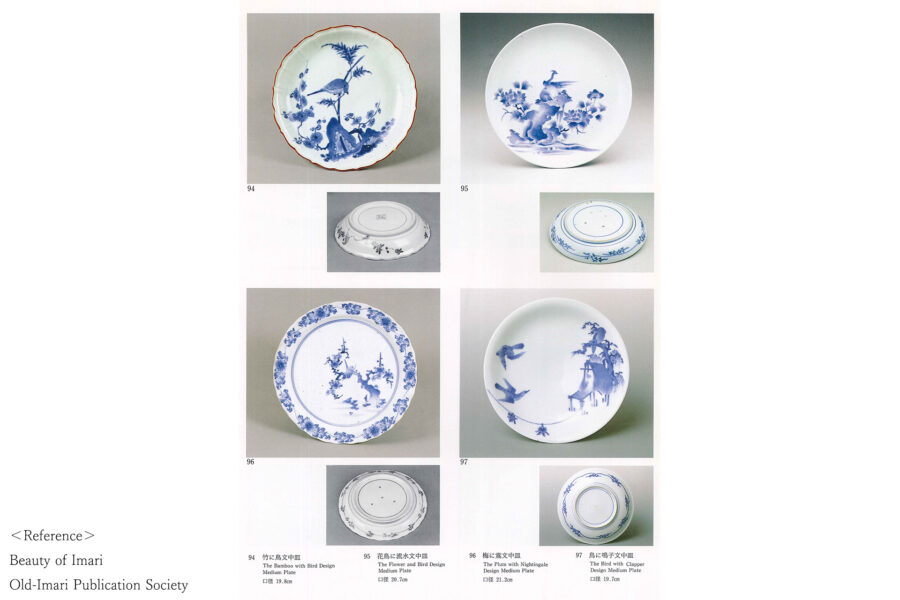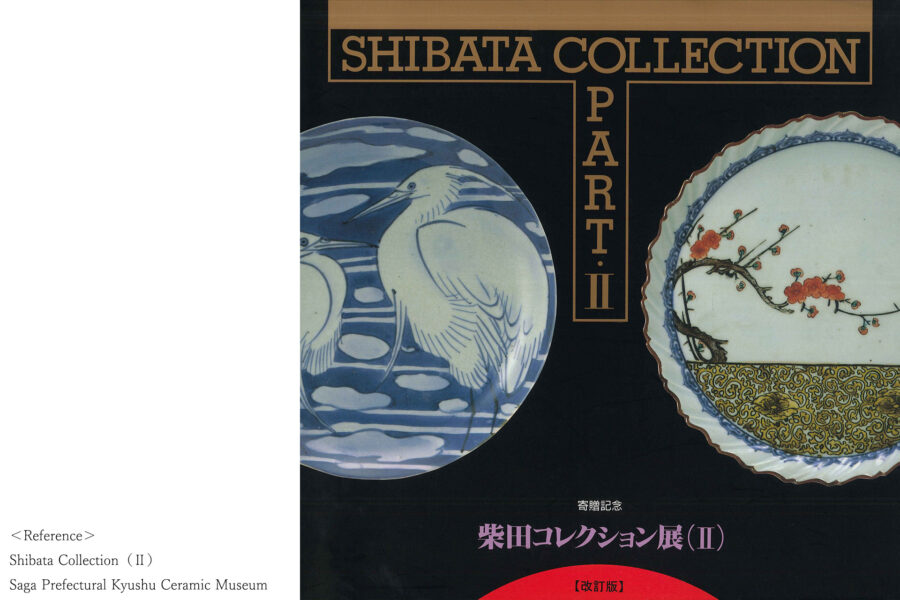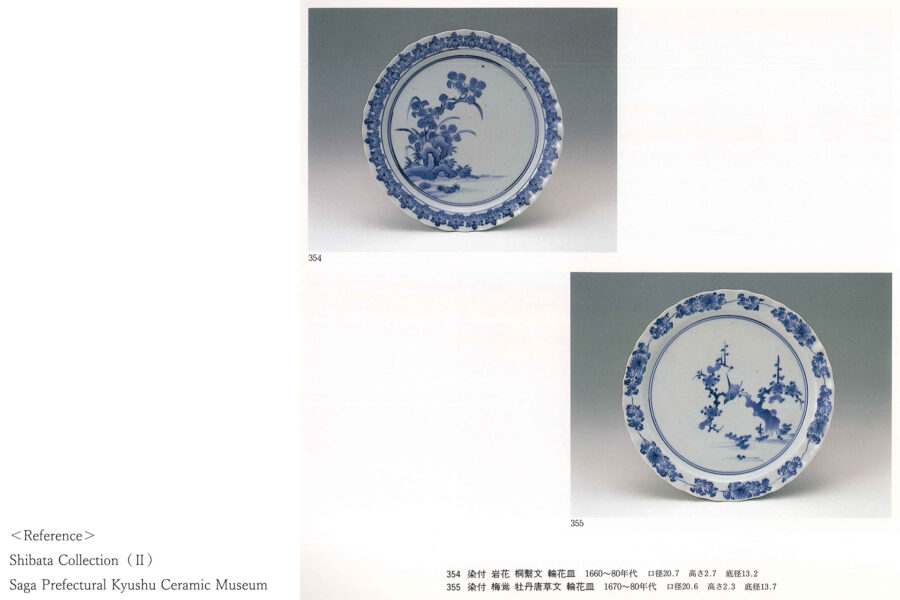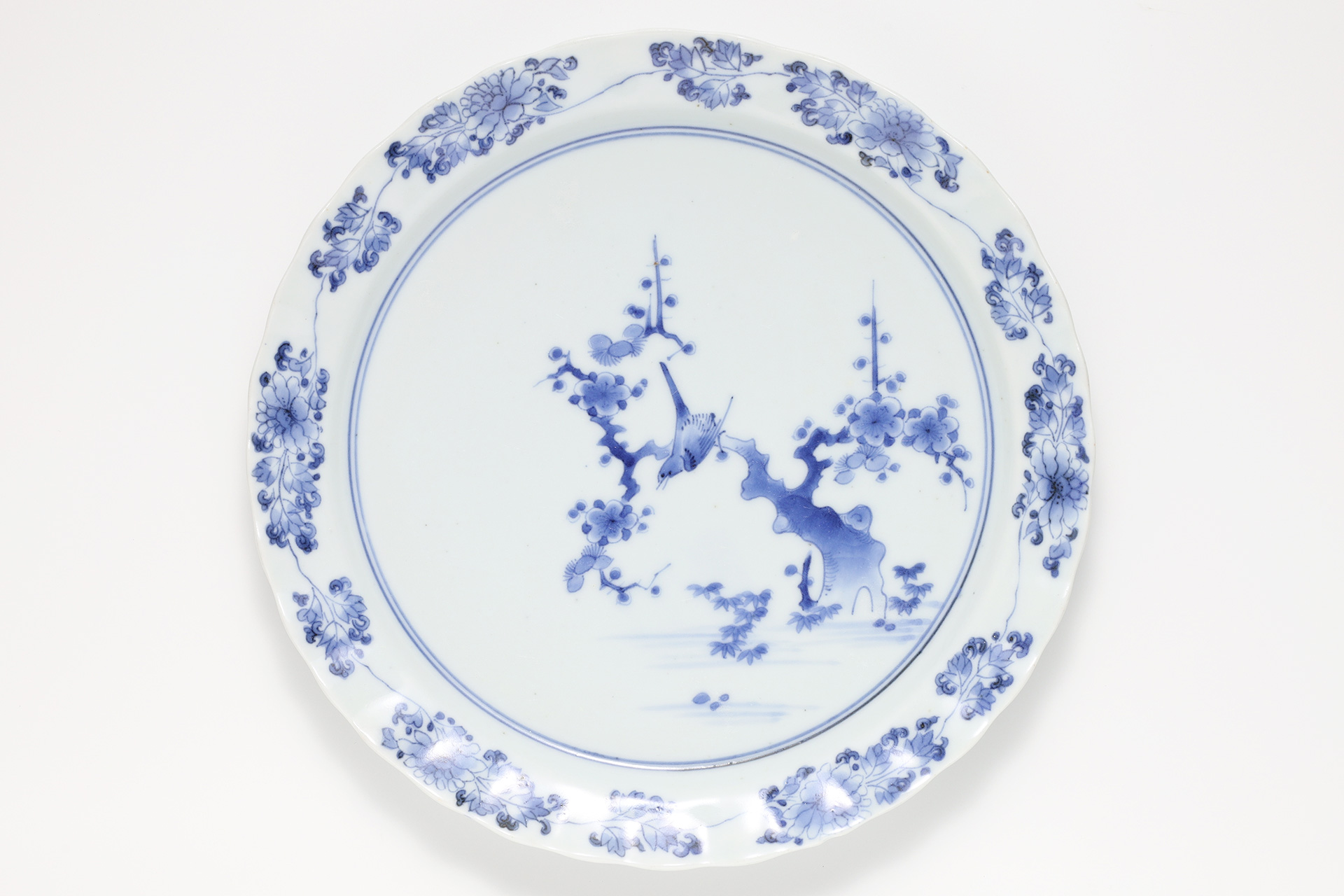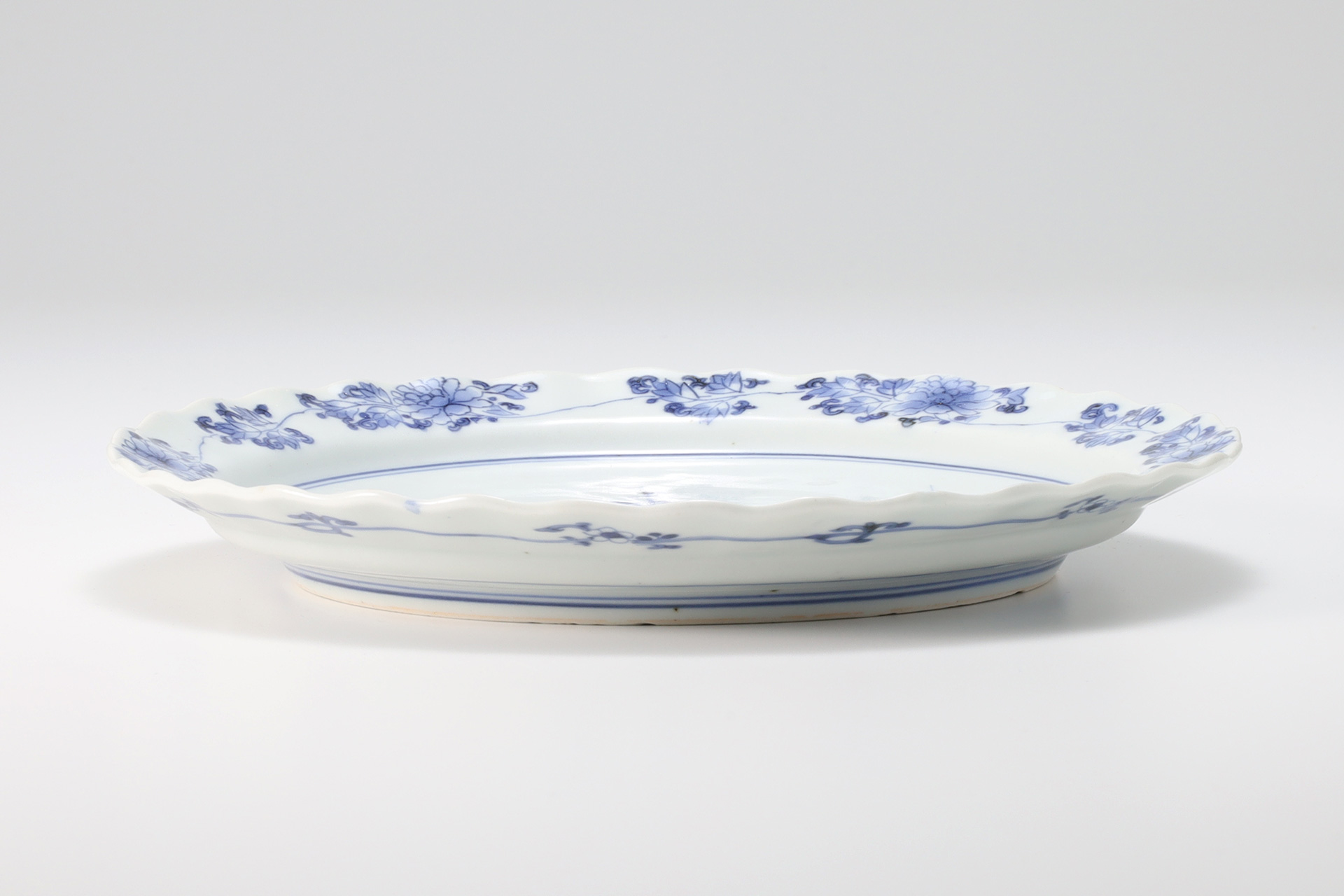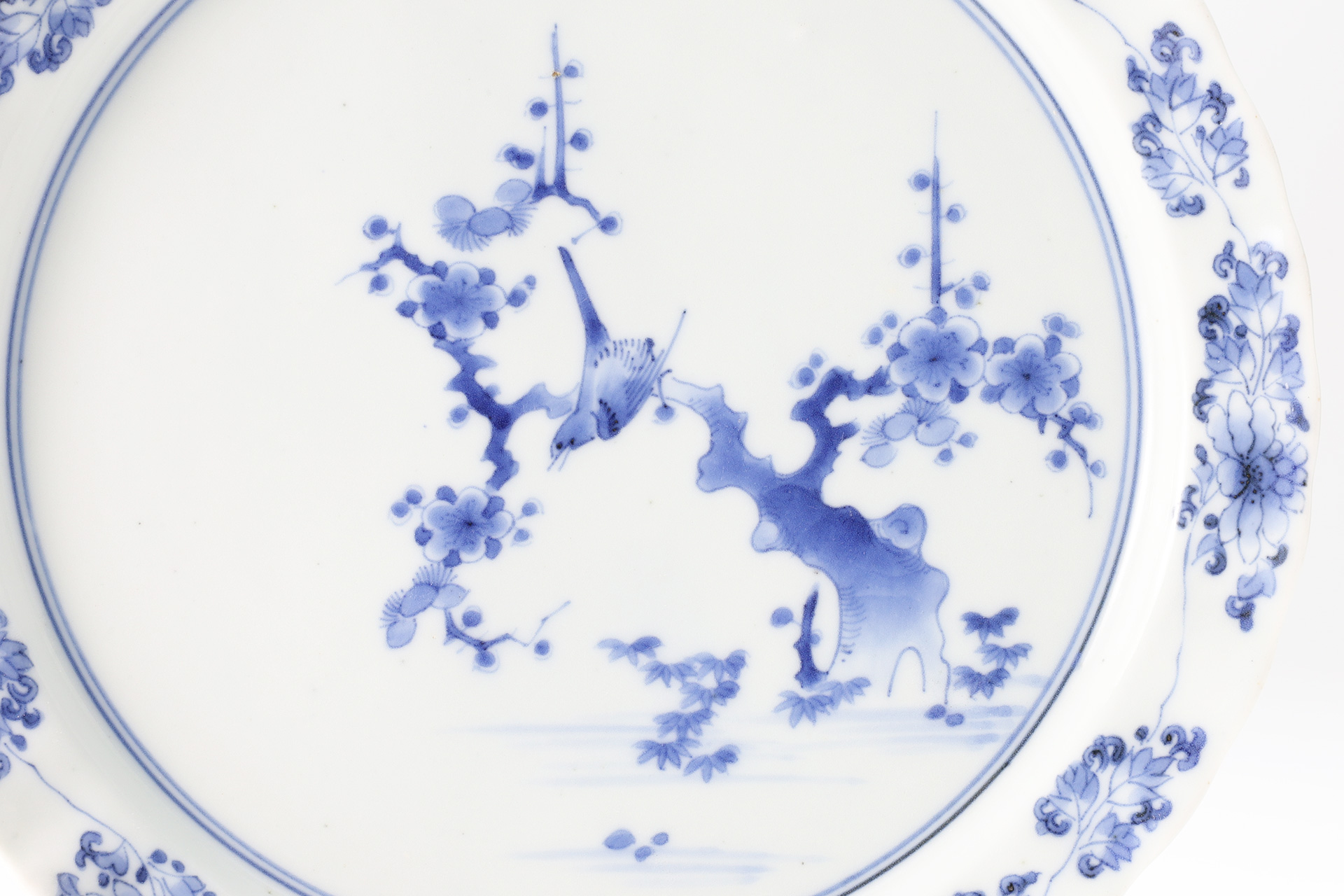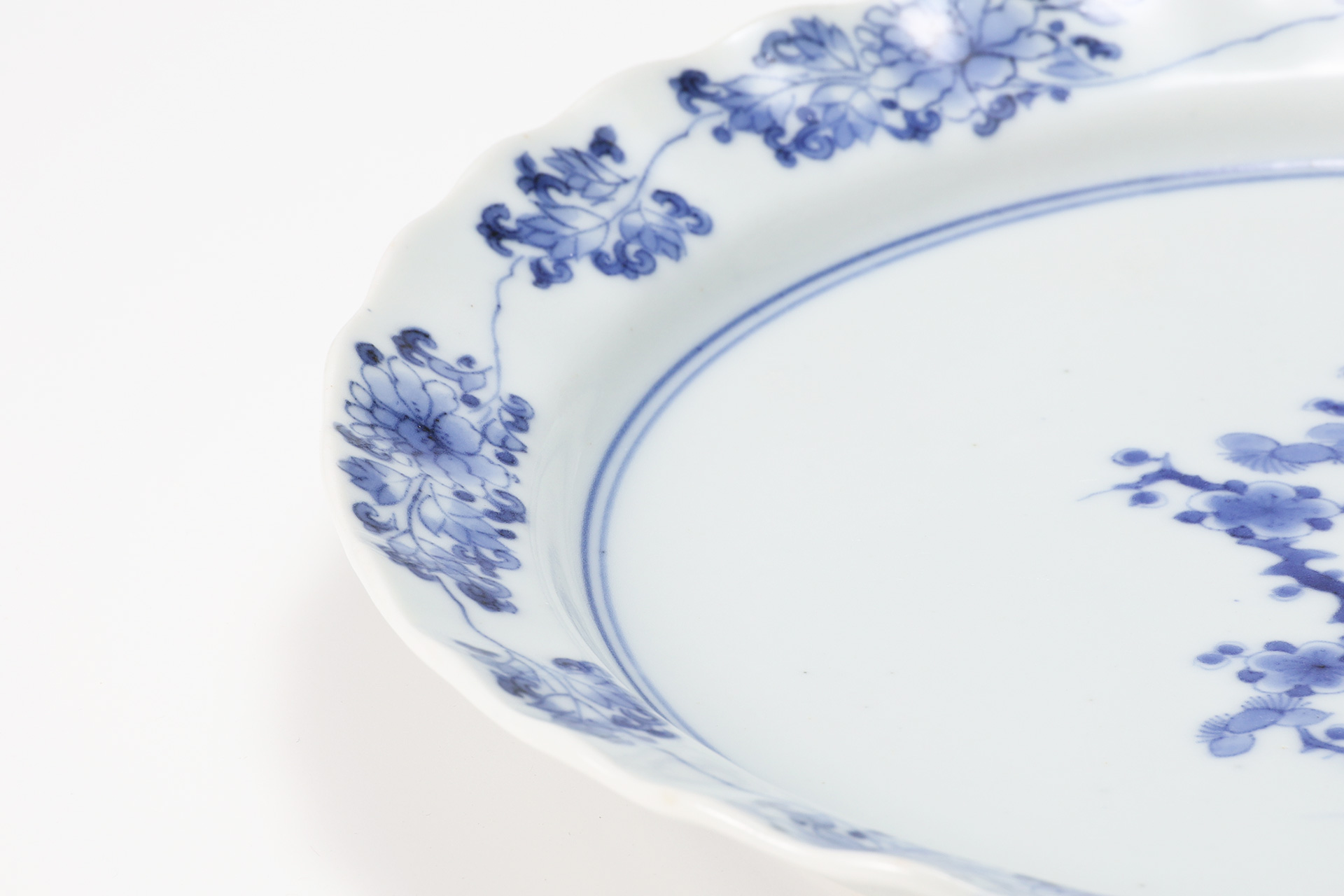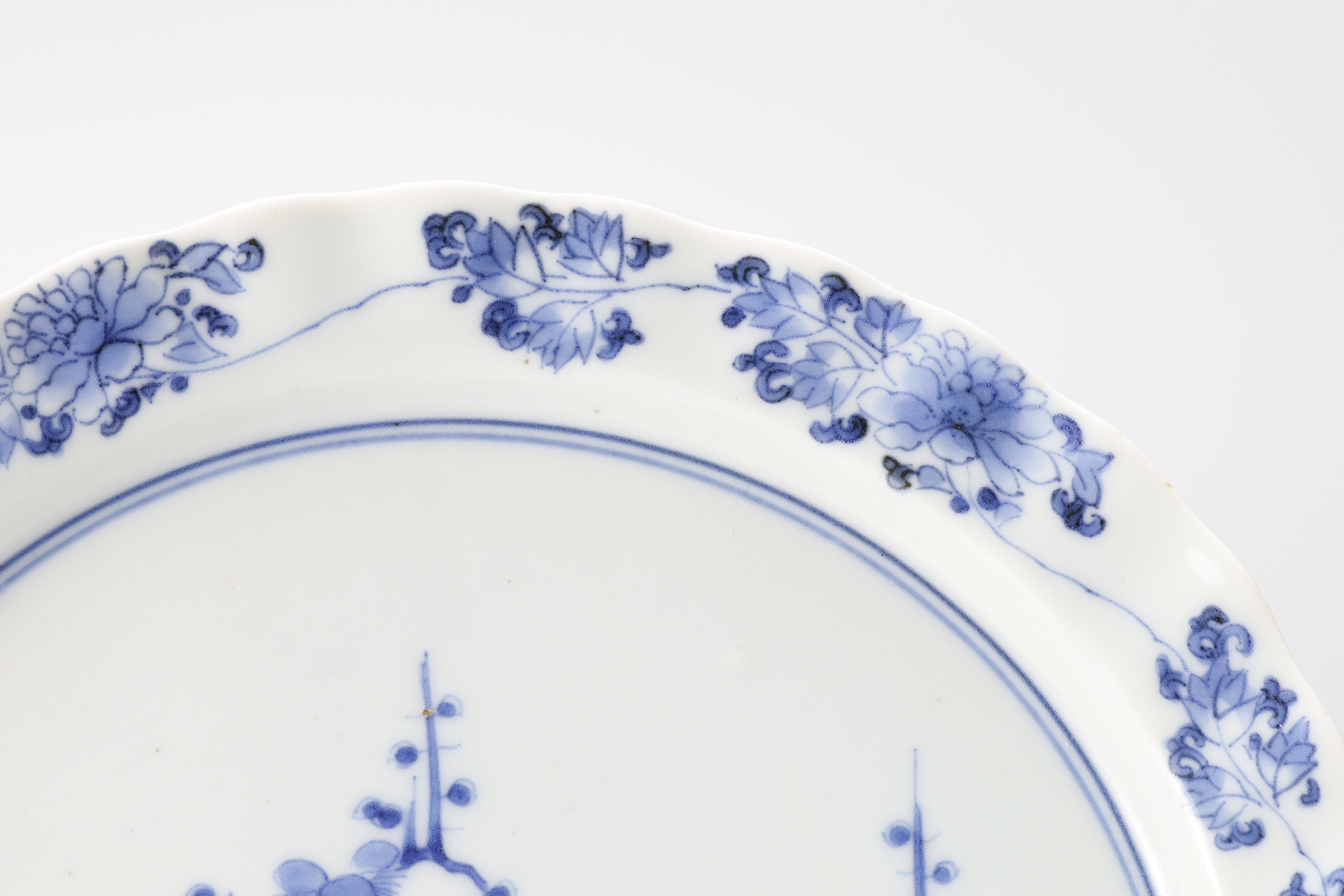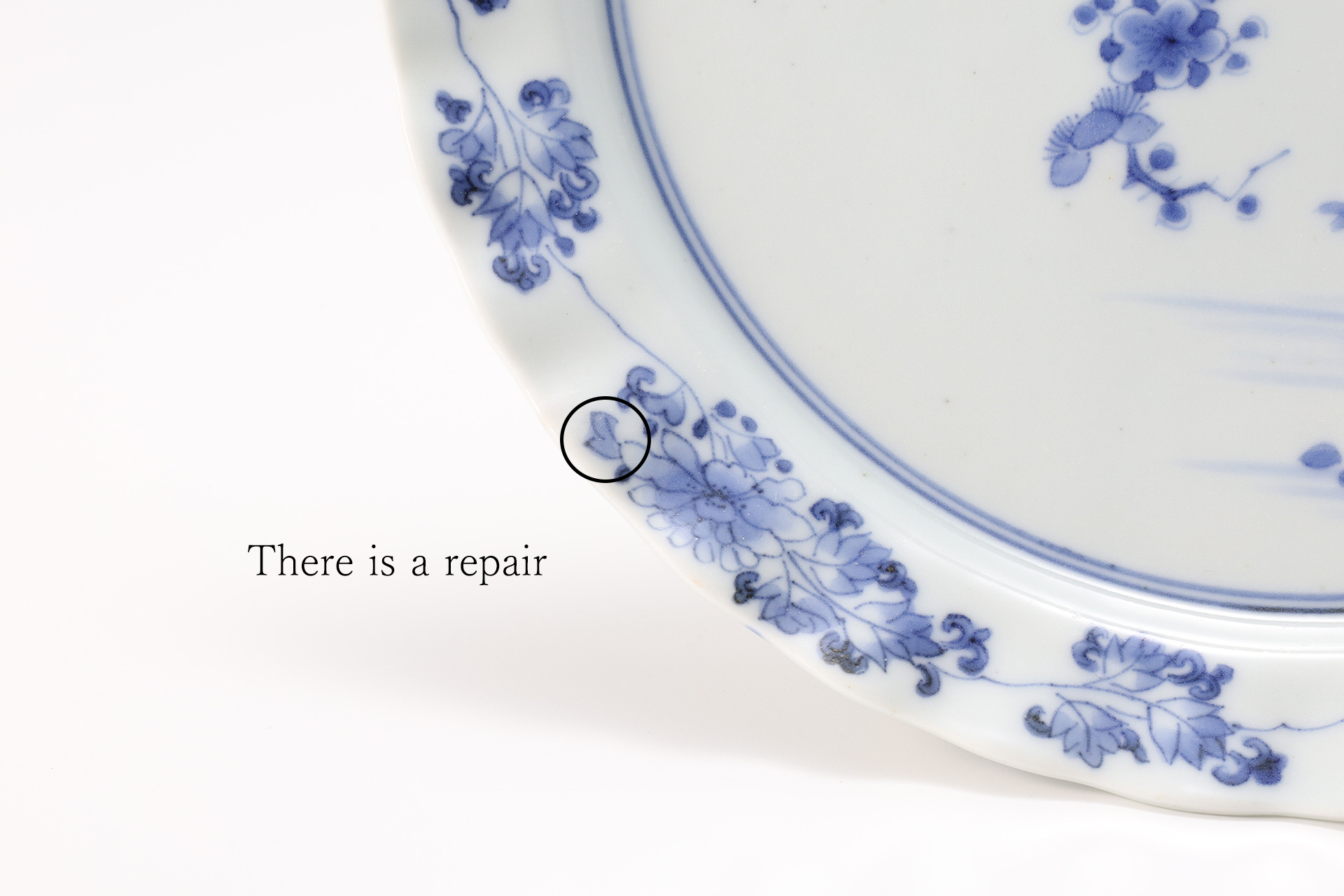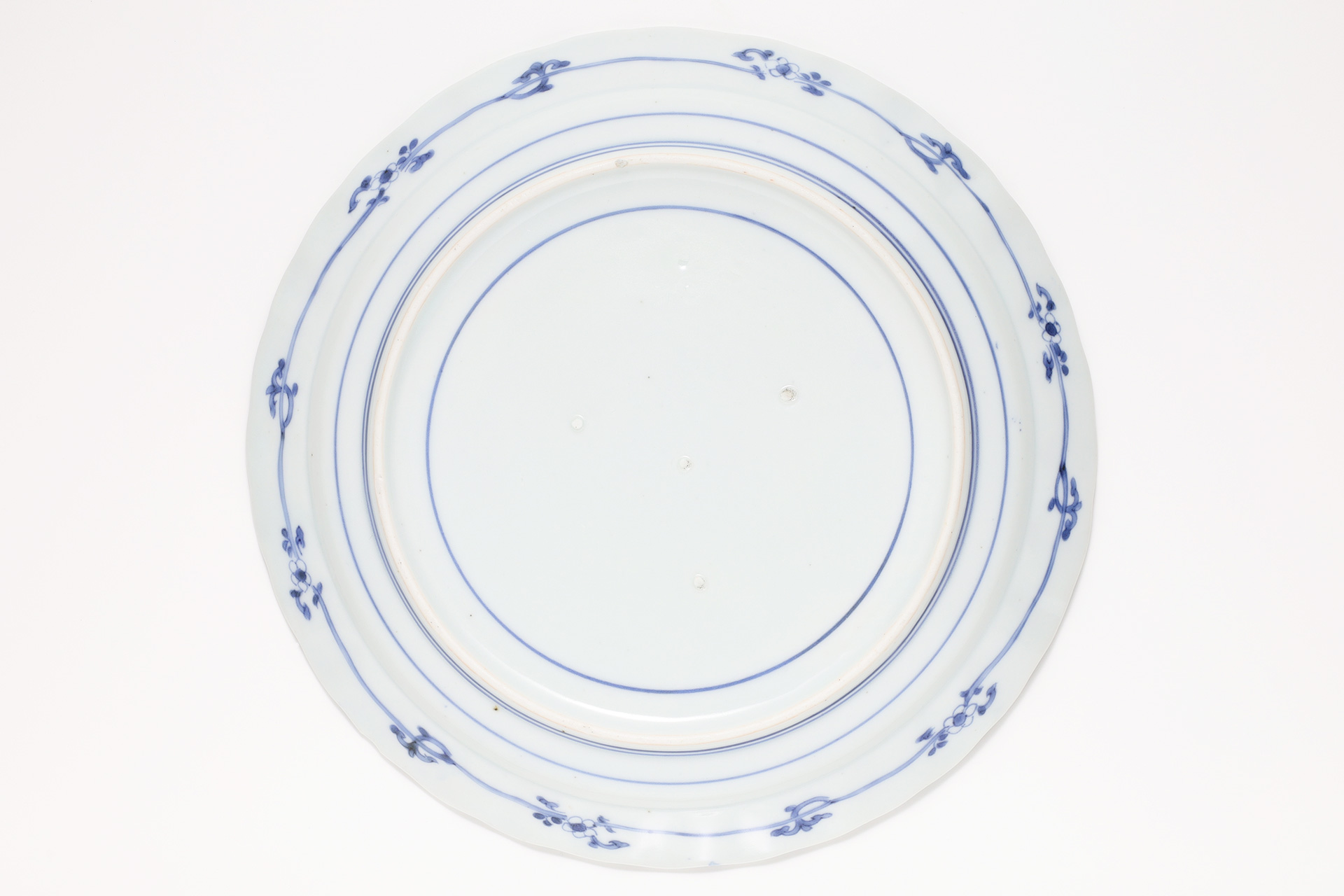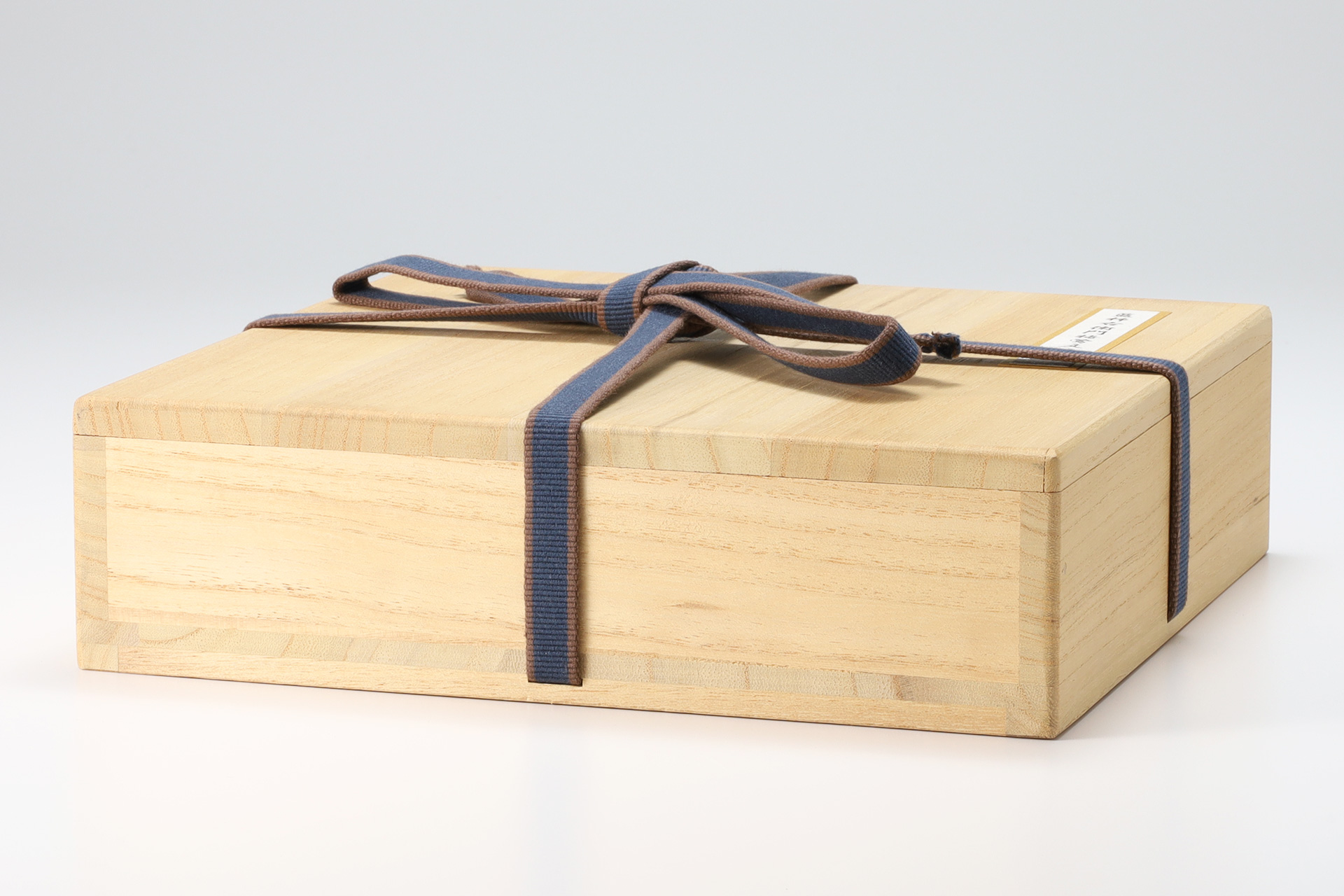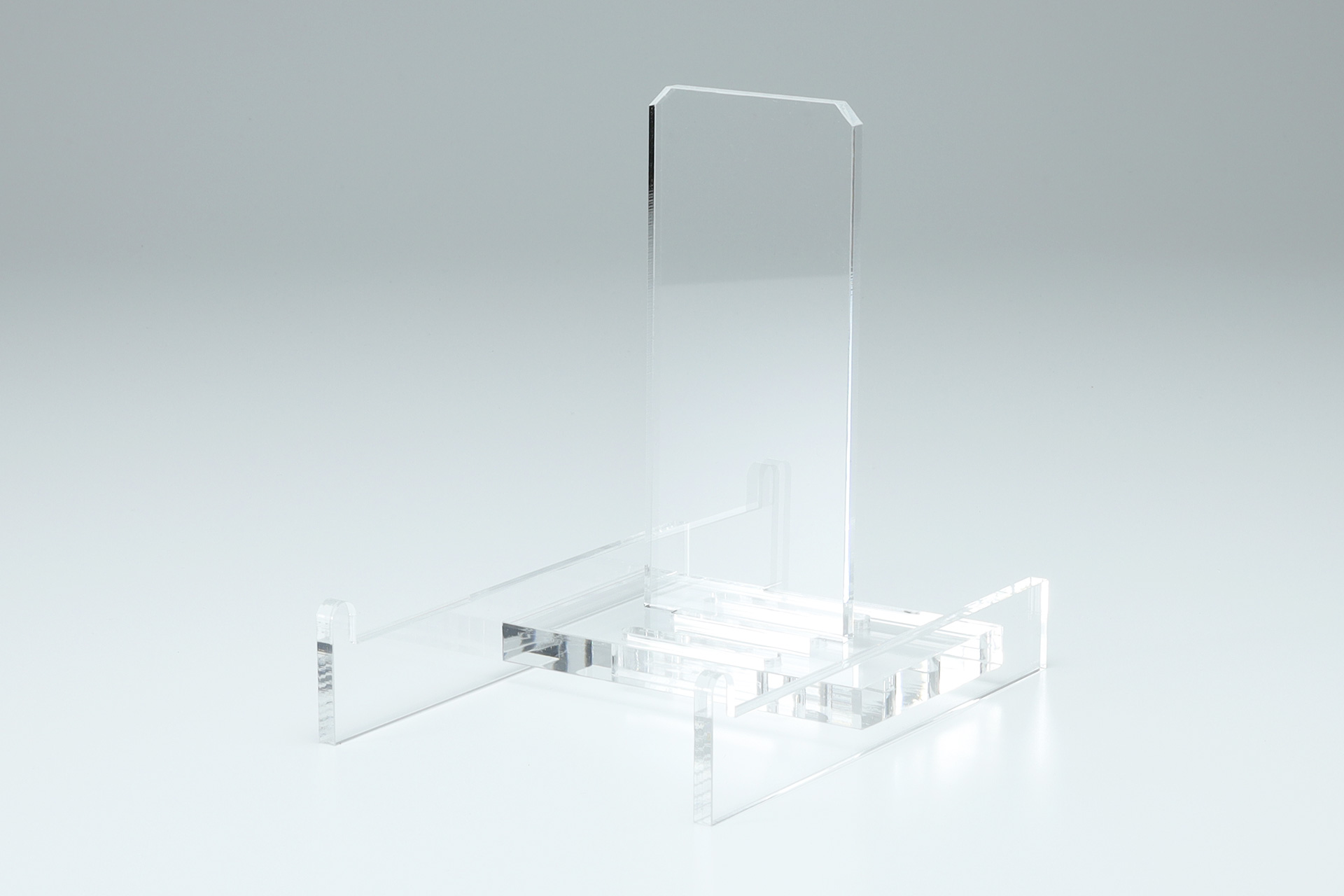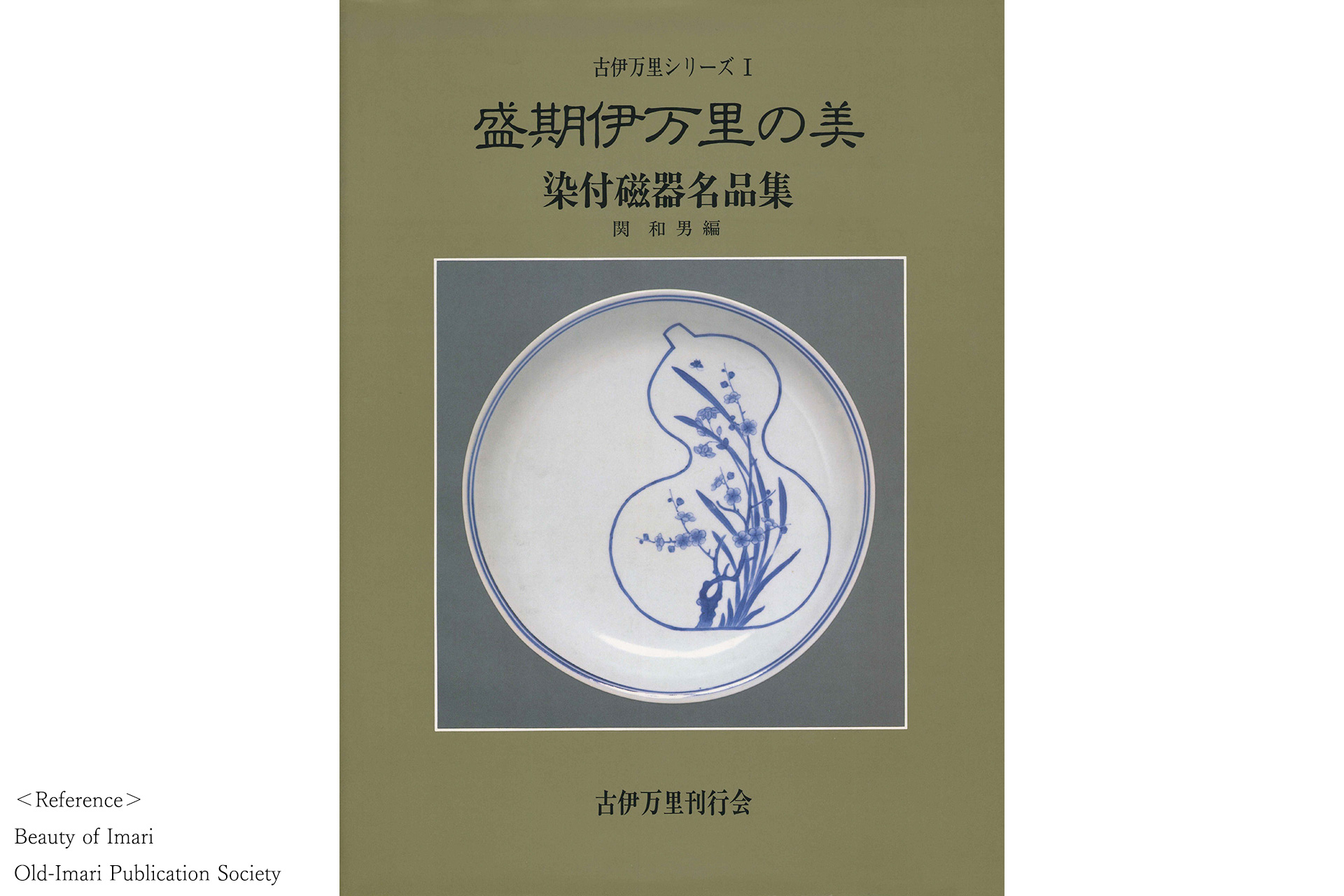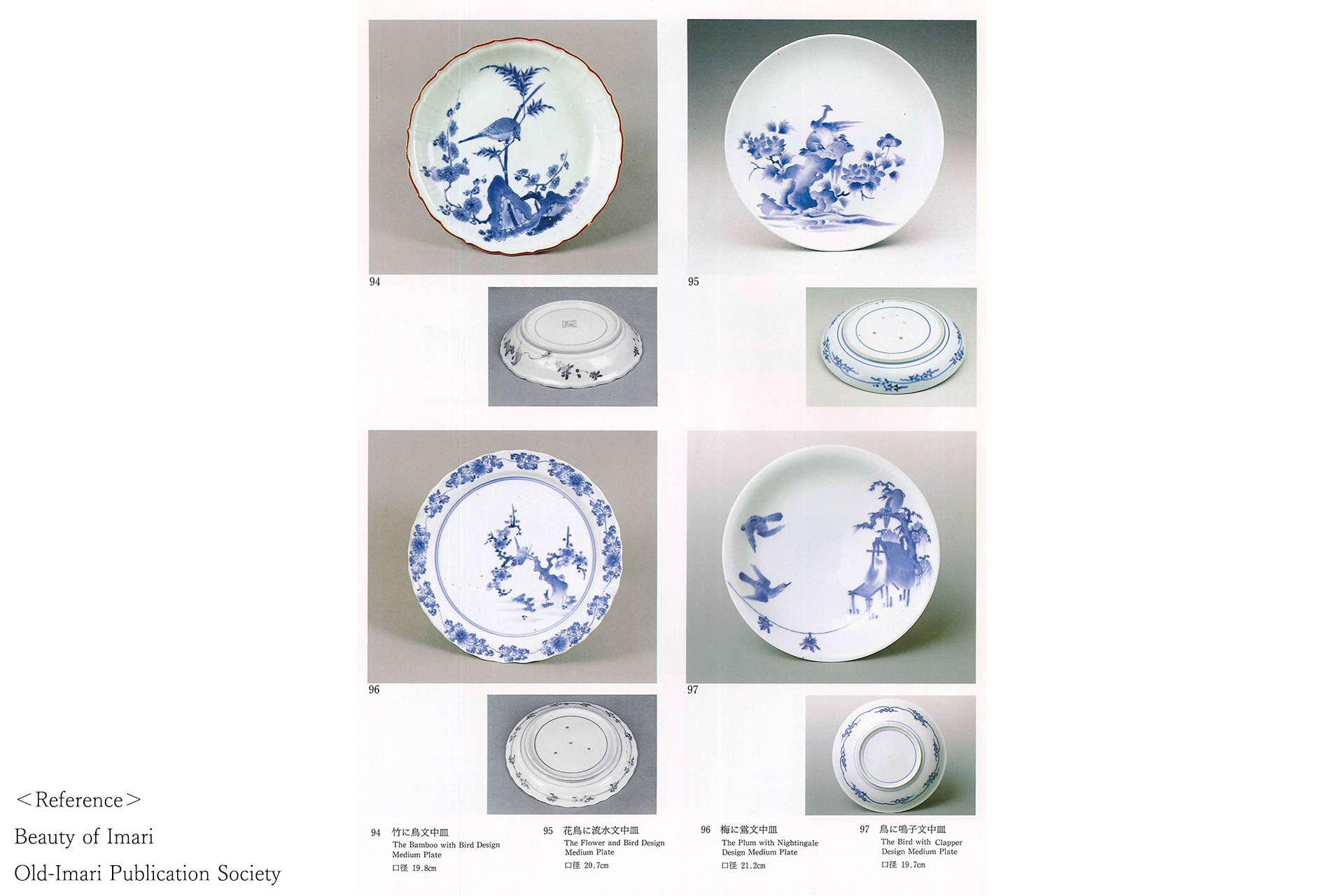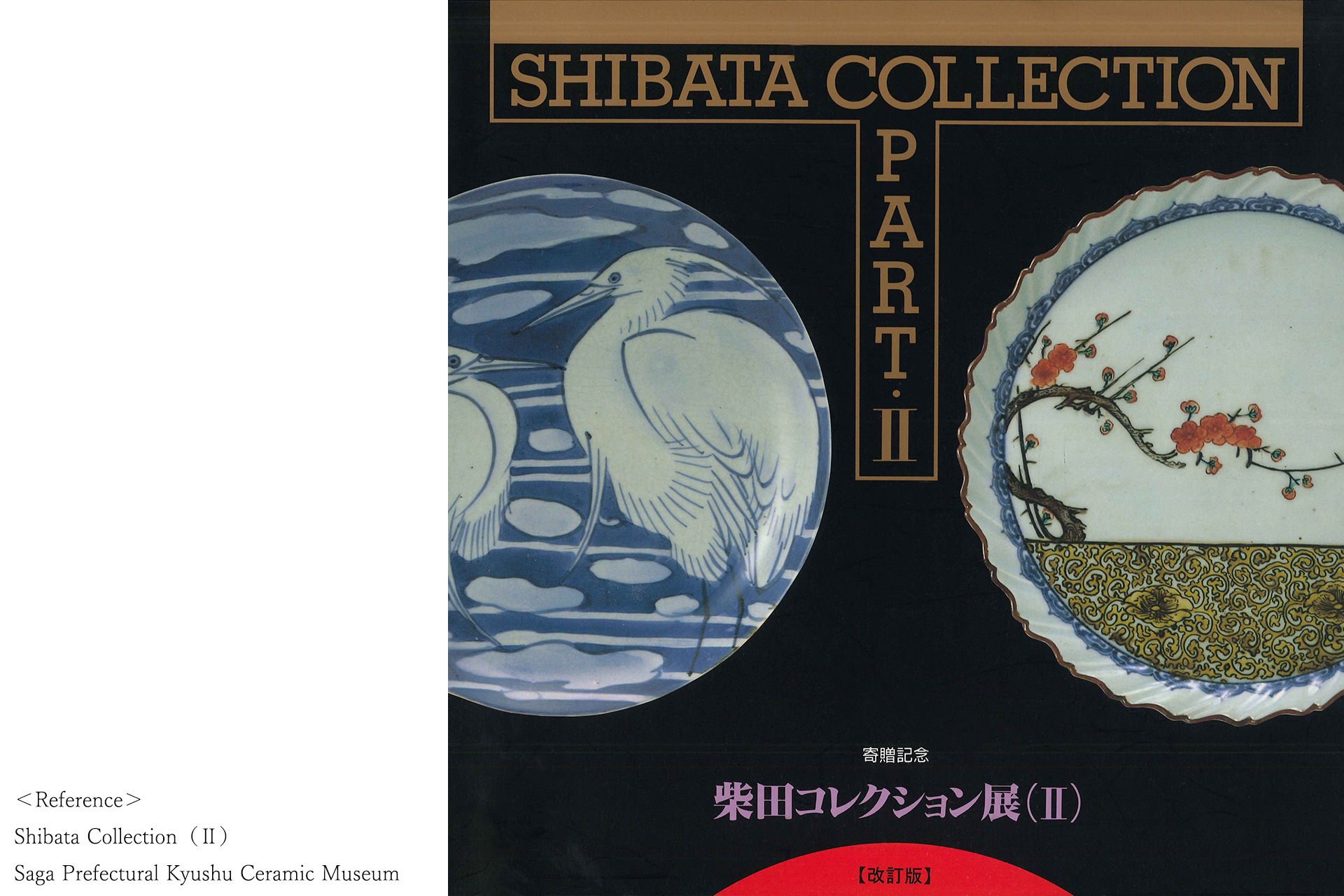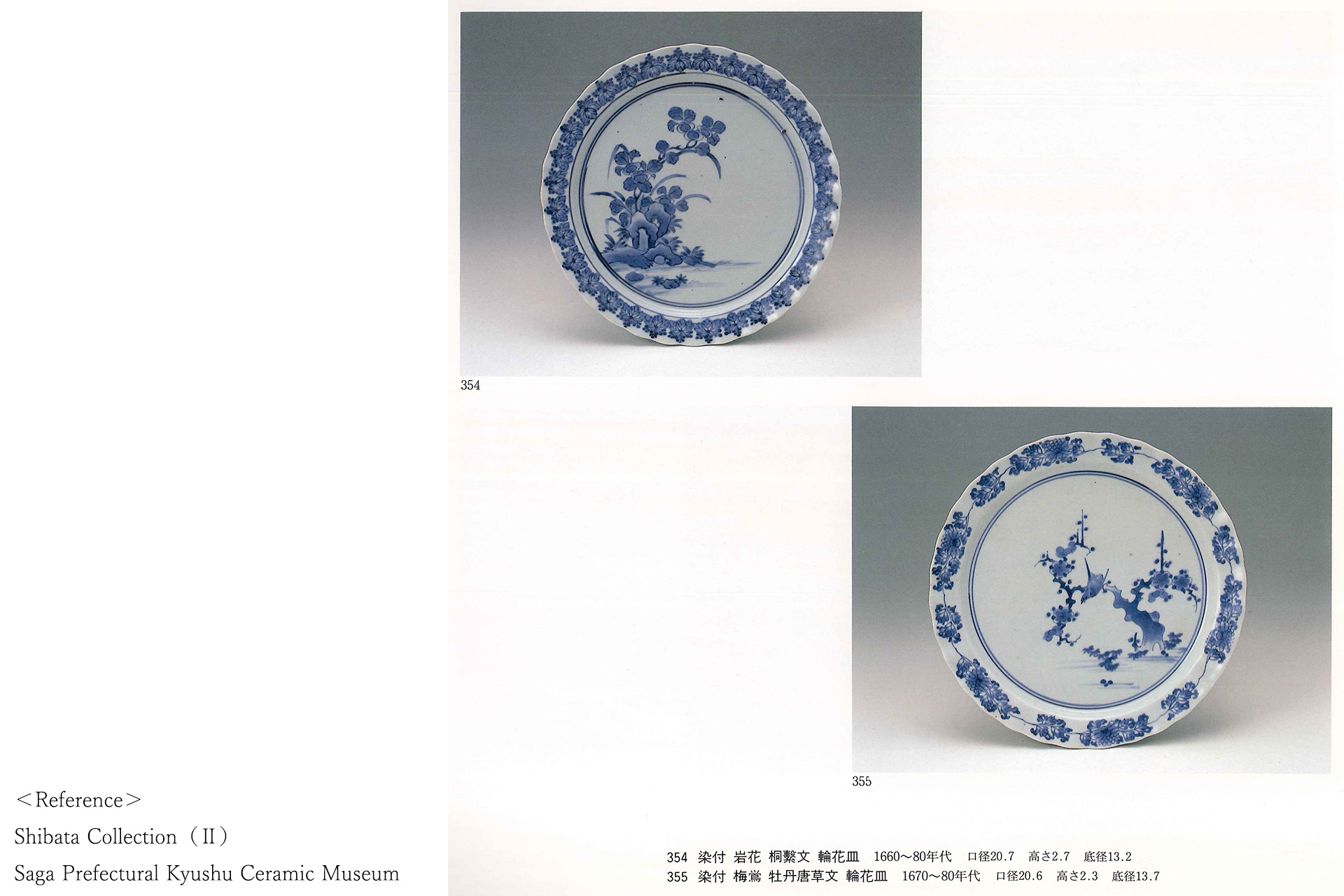This is the excellent work from old-kakiemon, featuring the popular plum and nightingale design. Taking advantage of the exquisite margin, the detailed brush strokes that make full use of the shades of blue and white create a dignified appearance. Similar works can be found in "Beauty of Imari" and "Shibata Collection".
Inquiry
- Product Code
- 240403-4
- Period
- Edo Period
Late 17th century
- Condition
- 379g
- Diameter
- 20.9cm
- Height
- 2.7cm
- Bottom Diameter
- 14.0cm
- Description
- Paulownia Box
Acrylic Dish Stand
- Condition
- There is a small repair at the edge
It meets the requirements of the excellent work with its strict shape, beautiful blue and white, and good firing.
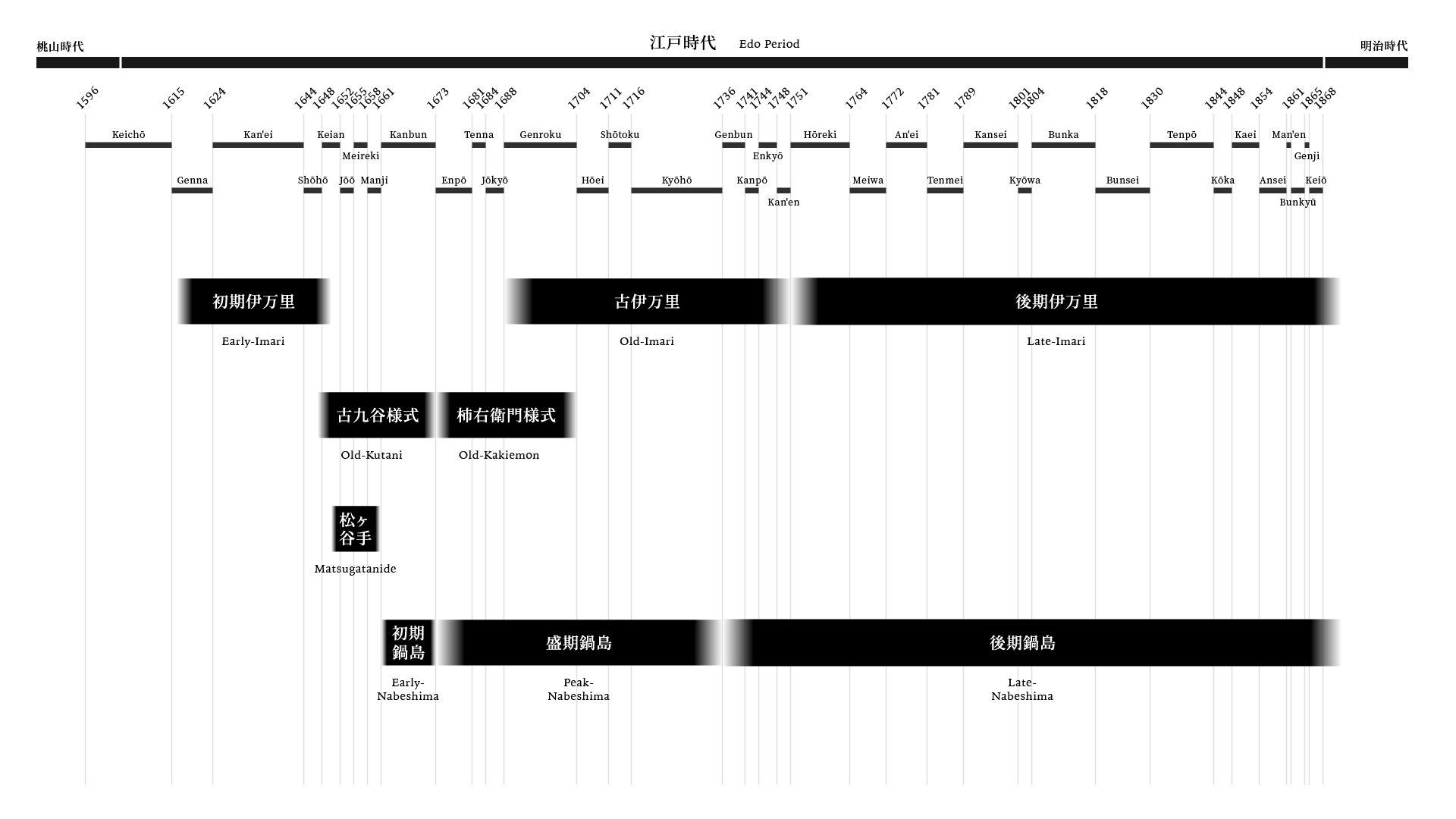
Old-Kakiemon
Old-kakiemon is a style of imari ware developed in arita, hizen(current saga prefecture), in the mainly during the Enpo era(1673-81). Today “Kakiemon” is defined not as exclusive works made by the kakiemon family alone but as a group of works ordered in significant quantities by the Dutch East India Company(VOC)and produced for export by several kilns in hizen arita. The elegant and graceful old-kakiemon, with its exquisite workmanship and delicate painting that makes full use of blank spaces, was especially popular among the porcelains exported in significant quantities by the VOC, and its high class work attracted european royalty and aristocrats. In addition, the warm and soft milky white base called “Nigoshide” accentuated the vividness of painted colors and greatly influenced later european porcelains such as meissen and chantilly. In the old-kakiemon, there are many works with inscriptions called “Uzufuku”. The name for this type of inscription comes from how the designed “Fuku” resembles a whirlpool. Inscriptions such as “Kin(Gold)”, “Inishiebito(Ancient People)” are often found on the finest, superior works. Although old-imari exported during the edo period displayed elegant beauty, the old-kakiemon works still catch people’s eyes and attract their interest even today.
https://tenpyodo.com/dictionary/old-kakiemon/
Stamping Molding
Stamping molding is a molding technique in which the base is turned on a potter’s wheel and then fitted into a mold to express the shape of the mold and the carved design. It is possible to create complex shapes such as polygons and flower shapes based on perfect circles formed on the potter’s wheel. The bottom is circular because it is carved out by turning the potter’s wheel while it is still in the mold.
